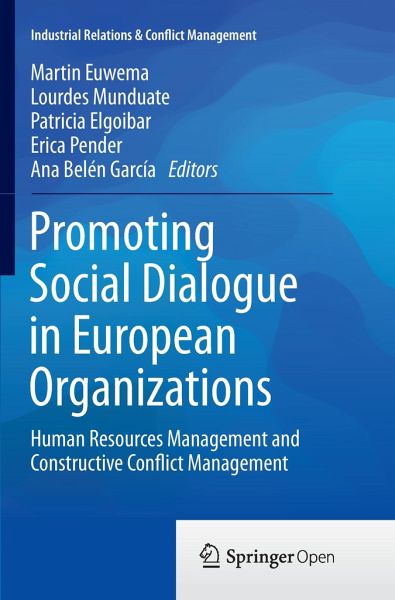
Promoting Social Dialogue in European Organizations
Human Resources Management and Constructive Conflict Management
Herausgegeben: Euwema, Martin; Munduate, Lourdes; Elgoibar, Patricia; Pender, Erica; Belén García, Ana
Versandkostenfrei!
Versandfertig in 6-10 Tagen
38,99 €
inkl. MwSt.

PAYBACK Punkte
19 °P sammeln!
This volume focuses on describing the social dialogue system in organizations from an Human Resources Management perspective. Based on the NEIRE model for industrial relations, key factors are determined contributing to creative social dialogue in European organizations. Actual data from surveys and interviews from more than 700 CEO and HR managers in eleven European countries give insights in the experiences with and expectations of employers of social dialogue. The volume offers a comprehensive introduction to the historical context and current situation in social dialogue in these countries...
This volume focuses on describing the social dialogue system in organizations from an Human Resources Management perspective. Based on the NEIRE model for industrial relations, key factors are determined contributing to creative social dialogue in European organizations. Actual data from surveys and interviews from more than 700 CEO and HR managers in eleven European countries give insights in the experiences with and expectations of employers of social dialogue. The volume offers a comprehensive introduction to the historical context and current situation in social dialogue in these countries. This context helps to understand the current major challenges in each country when it comes to a vital social dialogue. Using good practices from many organizations, this book offers an agenda for innovative and cooperative social dialogue in organizations.














